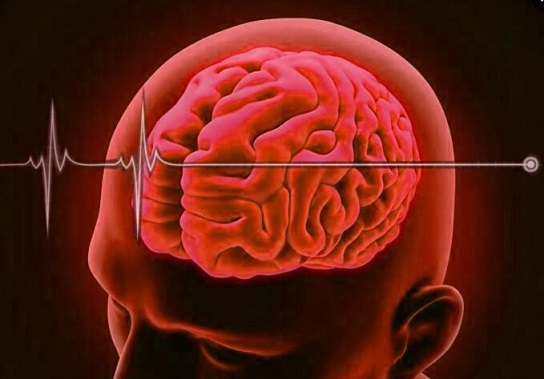Nikhil Prasad Fact checked by:Thailand Medical News Team May 15, 2025 9 months, 1 week, 2 days, 22 hours, 34 minutes ago
Medical News: In a deeply alarming medical case, doctors in China have issued a grave warning: COVID-19 can lead to catastrophic neurological damage in children, including irreversible brain death. The case of an 8-year-old girl who succumbed to a rapidly progressing brain injury caused by SARS-CoV-2 infection has shocked pediatric experts and added to mounting concerns over the virus’s underrecognized effects on the developing brain.
 Doctors Warn That COVID-19 Can Cause Brain Death in Children!
Doctors Warn That COVID-19 Can Cause Brain Death in Children!
The tragic case, reported by a team of doctors from the Guangzhou Women and Children’s Medical Center and Guangzhou Medical University, underscores a critical and growing realization in the pediatric medical community—that COVID-19 is not always mild in children, and in some cases, can be life-threatening through neurological pathways. This
Medical News report highlights the urgent need for increased vigilance and early detection of neurological complications in young patients infected with SARS-CoV-2.
A Sudden Decline from Fever to Coma
The patient, previously healthy aside from a history of mild allergies and childhood pneumonia, developed symptoms of fever, rash, vomiting, and seizures just two days before hospitalization. Despite receiving outpatient treatment, her condition deteriorated swiftly.
By the third day, she fell into a coma after experiencing several seizures. Brain scans revealed extensive swelling in both hemispheres and the brainstem, indicative of acute necrotizing encephalopathy (ANE)—a rare and often fatal brain disorder most often triggered by viral infections. Electroencephalogram (EEG) readings later confirmed complete electrical silence in the brain, a definitive marker of brain death.
COVID-19 was confirmed via nasal swab and sputum samples, with sequencing showing over 22,000 viral reads. Though a weakly positive rotavirus result was also noted in her stool, doctors believe SARS-CoV-2 was the main driver of her neurological collapse.
What Is Acute Necrotizing Encephalopathy?
Acute necrotizing encephalopathy (ANE) is a severe type of brain inflammation triggered by viral infections and typically seen in young children. It causes breakdown of the blood-brain barrier, allowing inflammatory molecules and fluids to flood brain tissues. This leads to rapid swelling and damage in critical brain regions, including the thalamus, brainstem, and cerebellum.
In the Guangzhou case, CT imaging showed widespread brain edema with signs pointing to increased pressure inside the skull. Follow-up transcranial Doppler ultrasound revealed failed blood flow in the brain’s key arteries. These findings, combined with absent brainstem reflexes and a “flatline” EEG, led to the official diagnosis of brain death.
Aggressive Treatment but No Recovery
Upon hospital admission, the child was placed on mechanical ventilation and received multiple medications: antibiotics, antivirals (including n
irmatrelvir/ritonavir), corticosteroids, and drugs to reduce brain swelling. She also received drugs to stabilize blood pressure and improve heart function.
Despite these extensive interventions, her condition continued to worsen. Over several days, repeat neurological assessments consistently showed no brain activity. On the ninth day of hospitalization, and after meeting national criteria for pediatric brain death, she was officially declared brain dead. Her family declined an autopsy, leaving some clinical questions unanswered.
Broader Implications and Similar Cases Worldwide
The research team, led by Dr. Bing Zhu and colleagues, reviewed previously published cases and identified at least 16 other reports of pediatric brain death linked to infections such as Epstein-Barr virus, influenza A (H3N2), rotavirus—and increasingly, COVID-19.
Many of the affected children presented with high fevers, seizures, and altered mental status—mirroring the symptoms seen in this case. While some children recovered with lasting neurological issues, many, especially those with COVID-19-related ANE, died or remained in a persistent vegetative state.
One standout feature of this report is the patient’s abnormally high level of IgE (a type of immune molecule usually linked to allergies or immune overactivation) and elevated cardiac markers, which may suggest that COVID-19 sparks a dangerous and widespread inflammatory storm in some children. Researchers speculate that this immune overreaction may be responsible for triggering brain damage even in the absence of the virus directly infecting brain tissue.
Unanswered Questions and The Need for Urgency
The case highlights major gaps in our understanding of how and why COVID-19 sometimes targets the brains of children. Not all pediatric patients with COVID-19 develop neurological symptoms—but for those who do, the outcomes can be devastating and unfold rapidly.
Experts from the Guangzhou Medical University emphasize the need for heightened neurological monitoring in any child showing neurological symptoms after COVID-19 infection. This includes seizures, extreme fatigue, altered consciousness, or even subtle behavioral changes. Early imaging, CSF testing, and EEG monitoring could help detect dangerous patterns earlier, allowing time for more aggressive intervention.
Moreover, the report calls for international research collaborations to identify early biomarkers of brain injury and develop standardized treatment guidelines for pediatric COVID-19 encephalopathy.
Conclusion
The heartbreaking story of this 8-year-old girl serves as a sobering reminder that COVID-19 is not always a benign illness in children. While most young patients experience mild or asymptomatic infections, a small subset may develop severe neurological complications such as ANE that can progress to brain death in a matter of days. This case illustrates the urgent need for early recognition, aggressive supportive care, and deeper scientific understanding of COVID-19’s neurological impact in pediatric populations. Only through continued research and global awareness can we hope to better protect our most vulnerable children from these rare but deadly outcomes.
The study findings were published in the peer reviewed journal: BMC Infectious Diseases.
https://link.springer.com/article/10.1186/s12879-025-11058-3
For the latest COVID-19 News, keep on logging to Thailand
Medical News.
Read Also:
https://www.thailandmedical.news/news/sars-cov-2-infections-literally-causes-your-brain-cells-to-die-more-emerging-cases-of-post-covid-acute-necrotizing-encephalopathy-in-young-adults
https://www.thailandmedical.news/news/rare-brain-disorder-in-young-adult-linked-to-covid-19-infection
https://www.thailandmedical.news/news/the-role-of-mirnas-as-potential-early-warning-biomarkers-for-influenza-associated-acute-necrotizing-encephalopathy-in-children
https://www.thailandmedical.news/articles/coronavirus
https://www.thailandmedical.news/pages/thailand_doctors_listings
